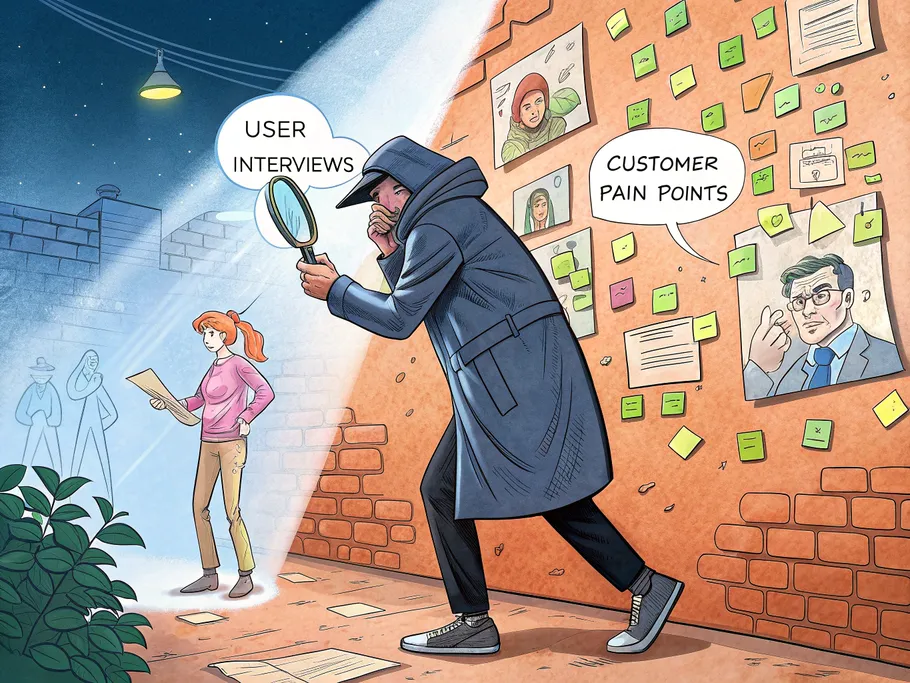Launching a startup is one of the most exhilarating and terrifying things you can do.
It’s the bold step of taking an idea from the back of a napkin and trying to turn it into a real business that feeds families.
The upside is huge:
Autonomy, creativity, wealth, legacy.
The downside is, well…: sleepless nights, financial strain, and the constant specter of failure.

Aaaand failure isn’t rare – it’s kind of the default.
Most startups do not make it beyond the first few years. Spooky!
But fear not! You have this guide!.
I’ve launched and exited multiple startups. In this article, I’ll show you BOTH the reasons to launch AND the reasons startups fail.
You’ll walk away with a clearer sense of why this path may be worth it for you.
The question every founder hears from random people is:
“Why would you risk it?”
After all, a regular job provides security. Paychecks arrive on time. Benefits are predictable. Stress levels are usually lower.
But on the other hand, you get:
When you start a company, you are the decision-maker.
YOU choose what to build, how to work, and who to work with.
You don’t have to wait for approvals buried in corporate layers.
If you want to change direction, you can — TODAY.
You build your dream, not someone else’s.
That autonomy is addictive. Once you’ve experienced it, it’s hard to imagine going back.
Big companies often drown in bureaucracy.
Even good ideas can take months or years to ship.
Startups, by contrast, can move with speed.
They can bring fresh solutions to market quickly, sometimes even before competitors know what’s happening.
This agility means you have a shot at making an outsized impact — not just on your customers, but sometimes on entire industries.
If you dream big enough, you can do it.

For many founders, the drive is not just financial. It’s about creating something that matters.
I’d like to argue that – if you follow purpose and passion first – the money will follow.
One of the best things about business is that you can build one according to YOUR wishes and aspirations.
If you don’t care about your mission… it will be hard to endure all the hardship that comes with starting a startup.
For all the romance of entrepreneurship, statistics paint a really bad picture.
The majority of startups fail, and they often fail for predictable reasons.
That can sound sad, but it’s also GOOD news.
If you want to avoid becoming just another cautionary tale, you can.
Here are the most common reasons for failure:
The good news is that every one of these risks is preventable — if you know where to look and build the right habits early.
Don’t begin with an app idea, a new gadget, or a clever piece of code.
Start with your audience. Start with their pain.
Ask:
What problem do people complain about constantly? What frustrates them? What costs them time, money, or energy?
Spend time in communities, forums, and conversations.
If you can’t find a problem people are desperate to solve, stop.
You don’t have a startup idea – you have a hobby.
So, once again, don’t start with the idea. Start with the pain.
SO many founders pour months into building products nobody wants.
It doesn’t make any sense.
Dip your toe in the water first. Just test the demand early, for example:
Create a landing page describing your product, run ads to it, and see if people sign up.
Ask for pre-orders or deposits if you can.
THEN build the product.
And if very few people bite, you can always refund them and move on.
But if they do bite… you got yourself a winner. Now build it and go all-in.
“Everyone” is not a customer segment.
Be specific.
Who exactly are you solving this for?
The more you know their dreams, desires, obstacles, and identity – the better.
Go extremely narrow – it will be much easier to build a product and marketing message that sells like crazy.

And once you dominate a niche, you can expand.
These aren’t complicated things. The best startups just do the basics really well.
Choose co-founders and early team members carefully.
I recommend you look for complementary skills, not for people who are just like you.
Discuss the hard topics early: equity splits, conflict resolution, goals, etc.
I’ve heard of (and experienced) MANY startup horror stories…
And the thing is…
Most of them could have been avoided by a simple conversation!
Just as you wouldn’t enter into a romantic relationship with someone just because they’re pretty, don’t find a co-founder just because you “like” them.
An MVP is a minimum viable product.
I know this will resonate with many of you:
Perfection is the enemy of progress.
I know you want to go all Steve Jobs and build amazing products. And that’s beautiful.
But first…
Build the minimum viable product that delivers the core value.
Ship it. Get feedback. Improve. Repeat.
Every cycle should answer one question:
Did this make the product better for our users?
Once it’s selling… Once you know people love it… Once you have PROOF – then make it perfect.
Always track your runway:
One of the biggest mistakes founders make is treating marketing as an afterthought — something you turn on once the product is ready.
I know you love building cool stuff, but your products won’t help anyone unless you find a way to sell them.
If you wait until launch day to find your customers…
You’ll spend months playing catch-up, burning through cash while you scramble for attention.
A cool idea that’s been working really well is openly sharing your journey.
Post updates about your progress, your challenges, and even your failures. Let people SEE the messy middle of building something new.
This works so well because a) it’s entertaining, and b) people root for you and identify with your solution.
That’s an idea that you may or may not want to use.
But talking about the problem before you pitch the solution is something you MUST do.
If you’re solving a pain point in healthcare, fintech, or climate, start creating content around that pain.
Blog posts, short videos, LinkedIn updates, Twitter threads — whatever fits your audience.
Show that you understand their struggles. When the product is ready, people will already see you as the go-to voice on the issue.
Your users WILL tell you what to do — if you listen.
Conduct interviews, watch behavior, analyze data.

Don’t cling to your assumptions. New founders do this ALL the time. They think they understand everything so well.
They think they have all the answers – but in reality, they often don’t.
They CAN’T know before making a handful of sales.
So make sure to listen to your market and adapt when you realize your intuition might have been wrong.
When you launch a startup, it’s easy to let the business consume your entire identity.
You tell yourself you’re “all in,” and in many ways, you are.
But that’s not the right mindset:
If your work becomes who you are, then your sense of self rises and falls with the company’s fortunes.
When revenue grows, you feel unstoppable.
When a launch flops or churn spikes, you feel like a failure.
That rollercoaster is NOT sustainable.
To endure the long game of entrepreneurship…
You need to separate church and state — your life and your work.
Your startup is something you do, not who you are.
It’s a project, not a personality. The moment you can internalize that distinction, you free yourself from the emotional whiplash of every small win and loss.
Practically, that means designing a way of working that fits you.
It also means having a life outside your startup — relationships, hobbies, fitness, family, or simply quiet time.
These aren’t distractions, no matter what some guru on Instagram says.
They give you perspective when things go wrong and prevent you from burning out when things go right.
Ironically, the more you detach your identity from the business, the better founder you become.
You make clearer decisions because you’re not protecting your ego.
You take smarter risks because you’re not terrified of what failure “says” about you.
And you stick with the journey longer, because your happiness isn’t chained to the graph of monthly recurring revenue.
Starting a startup is one of the most exciting and scary things you can do — but most of the risks are predictable and preventable if you know where to look.
Here’s what you need to remember:

Email subscription is available ONLY TODAY (oh, okay, and tomorrow).
Surely, we respect your inbox! Unsubscription works every day.

We’d love to tailor your experience — which of these best describes you?